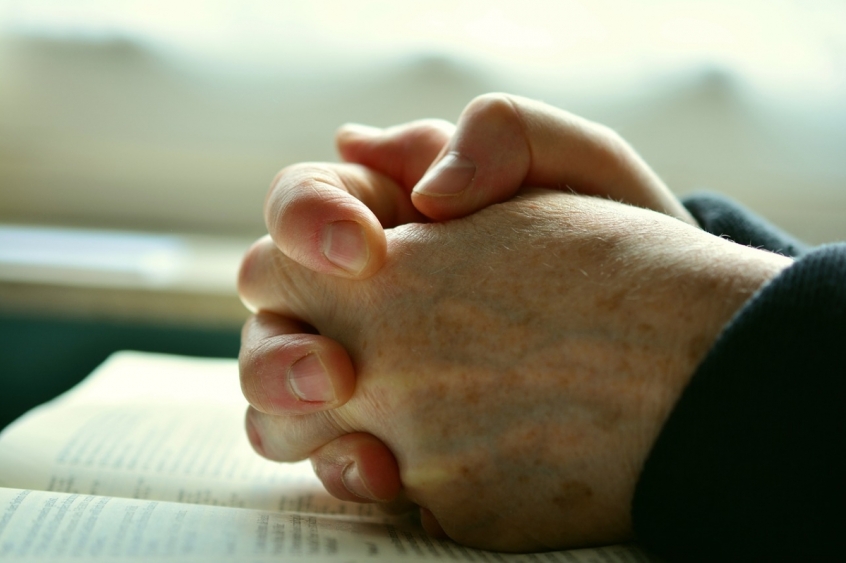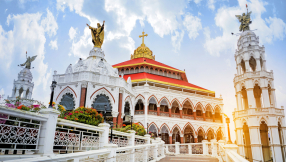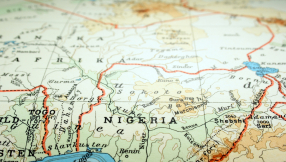Today, October 27, is International Freedom of Religion or Belief Day, an occasion to celebrate freedom where it exists and raise awareness of where it's sorely lacking. Religious freedom debates have raged for millennia and have only become more intense in an increasingly globalised, pluralistic and violent world.
Some may be unconvinced that religious freedom is particularly important – can't it just become a cover for intolerant sects, or an enabler for extremism? Others may doubt that religious intolerance is particularly prevalent, even if the witness of humanitarian groups insists otherwise.

Here are four reasons freedom of belief matters for all across the world, religious or otherwise.
1. The right to conscience
The day itself began as a commemoration of the Virginia Statute for Religious Freedom's enactment into state law, at the hand of US founding father Thomas Jefferson in 1776.
It was landmark legislation that became the model for the First Amendment to the US Constitution, which famously declares: 'Congress shall make no law respecting an establishment of religion, or prohibiting the free exercise thereof; or abridging the freedom of speech, or of the press; or the right of the people peaceably to assemble, and to petition the Government for a redress of grievances.'
The American ideal of liberty has been celebrated as one of the nation's defining values, a humanitarian goal that all can aspire to. Freedom of belief enshrines the idea that human beings are both valuable and free: their hearts and minds belong to no one but themselves, and no government can insist otherwise. If it does it is a tyranny and not a democracy.
Anyone, even those who identify as 'non-religious', has beliefs. When a greater power attempts to coerce or remove the right to those beliefs, it intrudes on sacred space. These may be familiar ideas to those in the democratic West, but even here they're still relatively recent. And putting freedom in legislation is only the beginning – but it marks a crucial step. It means that freedom isn't just a nice idea – it's the law.
2. Canary in a cage
As Lisa Pearce, the CEO of religious persecution watchdog Open Doors UK has warned: The 'fundamental ability to follow or to change your religion, or even to reject religion altogether is the "canary in the coalmine" of human rights. Once these rights are gone from a society, other rights quickly follow.'
Especially if a minority, religious groups are extremely vulnerable to oppression. Often easy to identify from what they wear or what they do – and easy to caricature – they can be an easy target for terror or totalitarianism. Dictators know that belief is powerful, a fundamental driver for human beings and their choices. If you take away the possibility of free belief, you operate with a new and dangerous level of control. As Pearce explained, standing up for the oppression of one minority's freedom is essential if you value your own.
3. Speaking truth to power
Free religion and belief in a society also stands as a challenge to the powers that be. Government is not inherently evil, but to function well it demands oversight and balance. Throughout human history there have been numerous examples where religious leaders – consider Mahatma Gandhi, Mother Teresa or Martin Luther King – have stood up as a prophetic witness to leaders in positions of power.
Government consists of fallible and easily corrupted human beings. Always in danger of succumbing to the lure of power, leaders and movements motivated by an alternative cause (religious or not) can offer the crucial counsel and rebuke that supports a free and just world.
A government that promotes free belief is both a bold and wise one; it trusts the people enough to protect them from its own potential oppression.
4. Freedom for all
Some religious groups value freedom of religion to a point, but not for all. Some Christians in the West protest about their own eroding rights, but don't speak up when Muslims are singled out for their faith. Pakistan has come under increasing criticism for the majority-Muslim nation's controversial laws against 'blasphemy', suggest one religious group is not making democratic space for another. Secularity may be popular in Britain but in other nations it's atheists who are under fire for their beliefs.
Those who pursue religious freedom should not do so out of self-interest or seeking special protection, but because they believe in universal liberty. Otherwise those who support liberty only when their own group's welfare is at stake risk looking deeply hypocritical. And such shared benevolence is possible.
Shared benevolence between groups who value a free conscience – even, and especially, when those groups disagree – is possible. As Pearce wrote last year: 'There is hope because in countries such as Syria, Christian communities are reaching out, caring for and providing for their Muslim neighbours. And there is hope because in places such as Mandera, Kenya, ordinary Muslims stood strong against anti-Christian attackers, effectively saying, "You kill all of us or none of us."'
Today points to a noble, courageous but ever-ambitious ideal: that all people are free to believe as they wish, and no power can police their thought. Can it be achieved? For the many who suffer for their conscience today, beieving so is its own act of faith.
You can follow @JosephHartropp on Twitter













